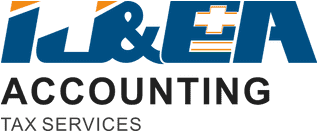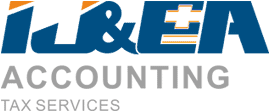While National Disability Insurance Scheme (NDIS) providers contribute so much to the community, they often overlook the financial aspects of their services; the common mistakes are as below:
- Lack of financial awareness
- Not understanding business structure
- Manual record keeping
- GST reporting
- Confusion between employees and sub-contractors
- Minimal tax planning & budgeting
Lack of Financial Awareness
Many NDIS Providers are busy with their day-to-day work, managing teams, and preparing necessary progress reporting. They also arrange to get paid, see the monies flow through, and then take out funds for holidays, luxury items, and personal enjoyment. Monies are flowing through regularly. However, it is not wise to not have at least some funds for the business running costs or some emergency money set aside.
It is essential to have a basic understanding of the financial side of the business. Preparing a simple budget can be a good starting point. Setting budgeted monies aside is also an excellent strategy to ensure that you don’t overspend the money and have peace of mind when the fund is needed.
Not Understanding Business Structure
There are different types of business structures, and the commonly used forms for NDIS Providers are:
Sole Trader
Most NDIS providers work as sole traders. It means either working directly with clients or engaging with an organisation on a contractual basis.
Company
It is also common to establish a company to conduct NDIS services. It is a separate legal entity, and more requirements are needed than sole traders to meet the necessary compliance works. However, it does provide some protection against commercial risks.
Many NDIS providers must know the pros and cons of the above two common structures. They should have thought through carefully from the outset, which may cause problems when encountering litigations. They could potentially lose their asset, including their home.
Manual Record Keeping
Surprisingly, there are many NDIS providers still doing things manually. Keep paper documents, record transactions on a cashbook, and use a calculator to do bookkeeping. It is one of the critical reasons that accounting records are far behind, resulting in a mess. It also creates a nightmare during the tax season as they are having trouble locating receipts that could be claimed as potential tax deductions and having to pay more taxes.
The accounting process is generally repetitive and shouldn’t be a headache for NDIS Providers. Once you have a good strategy in place, you follow the steps, and all accounting records can easily be up to date all the time, which can assist you in cash flow and tax planning. There is also a lot of software to choose from that can streamline the process.
GST Reporting
The services provided to the NDIS participant are GST-free If all of the following criteria are met:
- The NDIS participant has an effective NDIS plan
- The service is of reasonable and necessary support that is specified in the participant’s NDIS plan
- There is a written agreement between the provider and the NDIS participant
- It is a service covered by one of the tables in the NDIS Determination
Although the above services are GST-free, it does not mean NDIS providers don’t need to register for GST. Once your income exceeds $75,000 annually, you need to do GST reporting. Once registered, NDIS providers can also claim GST credits on business-related purchases as part of GST reporting. A simple example is illustrated below:
John and his workers are NDIS providers and provide GST-free services to NDIS participants. His quarterly income is $120,000, and he spent business-related expenses of $22,000 (including a $2,000 GST credit). As the services are GST-free, there is no GST payable due to the ATO. However, he can still claim a $2,000 GST credit back as part of his quarterly GST reporting.
Confusion Between Employee and Sub-Contractor
NDIS providers often engage sub-contractors to work for them under the impression that this arrangement can avoid certain employment types of expenses, such as superannuation and work cover obligations. However, this is a common pitfall.
If the contracting arrangements are mainly for their labour, they will be classified as employees for superannuation guarantee purposes. It means you must pay at least quarterly superannuation based on the super guarantee percentage. The table below shows the required rate of superannuation for the current and upcoming years (excluding Norfolk Island):
| Financial Year | Percentage |
| 2023 | 10.50% |
| 2024 | 11.00% |
| 2025 | 11.50% |
| 2026 and onwards | 12.00% |
It is, therefore, imperative to review the contracting arrangements and ensure the relevant NDIS provider obligations are met to avoid any costly corrections down the track.
Minimal Tax Planning & Budgeting
Do NDIS providers pay tax and talk about how accountants help with it?
Taxes are often the last items on the NDIS Providers’ list. It’s good to see monies flow through to the bank account; however, you should remember that you must pay tax for the income. People usually need help to come up with a lump sum of money to pay their taxes (especially for the new starters) as they already spend all their income on holidays or personal things.
People with taxable income of around $120,000 have an average tax rate of approximately 27% after considering the tax-free threshold for tax residents. Imagine that if you don’t plan tax, how can you come up with $32,000 to pay for the tax with the above example? Therefore, having tax in mind from day one will certainly assist with your essential planning and certainly will help with your budgeting as well.
At IJ & EA Accounting, we assist our clients with tax planning and educate them, so they don’t have a tax problem and try to catch up on tax payments year after year. If you are already in a tax debt position and want to get back on track, it is essential to talk to professional accountants and map out a plan.
Why Choose Professional Tax Accountants?
Professional tax accountants analyse your financial position and come up with strategies that enable you to minimise your tax. This is why it is important to let the experts do the job while you focus on your business.
Get in touch with professional tax accountants here at IJ&EA and allow us to manage your accounting in the most efficient manner possible.












